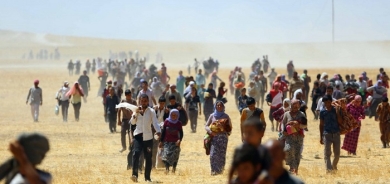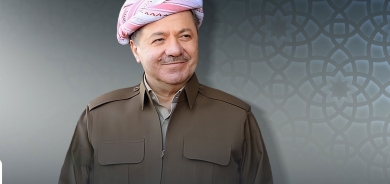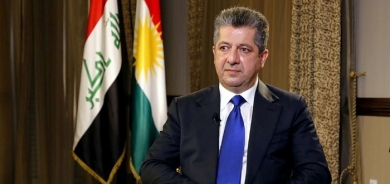Why Defining ISIL/Terrorism Proved So Difficult and The Most Fundamental Barriers For Terrorist Definition

Delineation is the ‘reduction of the variety of the phenomenon to the unity of a general background’. However, while attempts might be made to define terrorism in such a way, that reduction seems to be doomed to fail, for the term terrorism applies to phenomena which have nothing in general or in common. There is no synthetic formula that one can attach to terrorism because the term terrorism has constantly changeable connotations. As well, various types of violence are labelled as terrorism, but they have nothing in general aside from their name. Therefore, while we search for a definition of terrorism, we are the victims of a ‘nominalist fallacy’. We consider that common phenomena, named as terrorism, have the same nature because they have a similar name (Begorre-Bret 2006: 1989-90).
Currently, the term terrorism is used in a way that encompasses a wide variety of phenomena, and which allows considerable confusion; consequently, studying terrorism and the range of moral, political and legal queries that arise in relation to it is often difficult and frustrating. There are only two things that are clear and which have consensus among scholars and others who study terrorism; it is a sort of violence, and an evil, not something to be supported or proud of (Primoratz 2004: 7).
In this piece of writing, I would like to very briefly highlight four significant barriers facing scholars and others working in terrorism field: firstly, the complexity and imprecision of the term terrorism; secondly, the incorrect use of different aspects of language in the media, and in political and academic disciplines; thirdly, the recognition of organizations and individuals as terrorist in nature and the interpretation of their motives as brutal terrorist acts without profoundly studying the individual cases of violence; and finally, the transformation of the term terrorism and its connotations.
The first obstacle in the definition of terrorism refers to the term’s status as a highly critical label. Scholars have used the words terrorism and terrorist in pejorative method; as well, they have depicted vague images with a strong negative implication, for example, images of savagery, barbarism and even evil. The terms terrorism and terrorist are frequently used as political labels, to blame and to condemn ferocity or threats of ferocity by particular players as immoral, ‘indiscriminate’, and ‘unjustified’, or to intensely condemn a particular segment of the population (Jackson et al 2011: 101).
In practice, the term terrorist is constantly causing trouble by an increasing need to justify the reprehensible. This has demonstrated the significant barrier to the creation of a general acceptable definition, particularly in the international arena. The term terrorism itself can be an obstacle, rather than an aid to sympathetic inquiry. Our understanding is underlined by the careless usage of terms that carry emotional value judgements. It is necessary to point out that there is a basic opposite here: “what I do, however unpleasant is not terrorism; what you do is terrorism” (Cooper 2001: 884).
As aforementioned, the labelling of terrorism by their opponents never, or hardly ever, addresses the protagonists as such, and they endeavour to use different titles or specific terms to describe their own performances, for example, freedom fighter, separatist, revolutionary, militant, liberator, paramilitary, rebel, guerrilla, patriot, or some other terms in other languages such as Mujahidin and Jihadi, etc.. It is very common for opponents to label each other as terrorism. Hamfon (2006: 2) asserts that common scholars and those who are working in this framework agree on one point: terrorism is a pejorative word. “Terrorism is a word with intrinsically negative connotations that is generally applied to one’s enemies and opponents, or to those with whom one disagrees and would otherwise prefer to ignore.” The pejorative meanings of the term can be concluded in the aphorism ─ ‘one person’s terrorist is another persons’ freedom fighter’.
The second related problem concerns the common and diverse aspects of the language of terrorism in the media and academic disciplines, and in political discourse. Because the term bring with it disapproval and condemnation, its usage also commences, when we hear it, with the consideration that something dramatic and vital has happened (Combs 2006: 153-54). Political elites endeavour to use different manifestations of language to create the definition of terrorism and they tend towards over-generalization, ambiguity and even extreme flexibility in exhorting authorities and the courts to apply the term to different actors and situations. However, on the other hand, an academic scholar’s definition of terrorism can suffer from the very opposite problem; the introduction of such a complex language into the notion of terrorism so as to make it, for many, almost unusable, (Jackson et al 2011: 101). “This imprecision has been abetted partly by the modern media, whose efforts to communicate an often complex and convoluted message in the briefest amount of airtime or print space possible have led to the promiscuous labelling of a range of violent acts as terrorism”, (Whittaker 2003: 5).
The barrier to creating an adequate definition of terrorism exists not only because of the intricacy of that to which it refers, but also, largely because different media and political elites have a very different concept of and sympathy towards the measures by which terrorism is to be delineated and assessed. For instance, for various individuals, terrorism is an offense or, conversely, an act ordered by God; for others, it refers to an action aimed at preserving power or pride; still others assert, variously, that it is an acceptable operation against oppression or a sort of movement to attack security and peace; in some instances, it is even interpreted as a request for identity, (Hoffman & Graham 2006: 247-48).
The third difficulty is the use of the term terrorism to denounce organizations and heads of organizations as varied as Greenpeace and Kurdistan Workers Party (PKK), Hezbollah, Hamas and etc. This not only echoes the value of the term for condemning one’s political rivals; it also refers to the wide and often subjective philosophical interpretations that give rise the infamous expression; one group’s terrorist is another group’s fighter for freedom (Pape 2005: 127-28). Therefore, this sort of a symmetrical standard is less apparent and thus may even be one of the strong barriers to coming to a definition that can be attached to the concept of terrorism; it is an eagerness to label and blame insurgents who are acting in a violent or so-called ‘terrorist’. Without profoundly examining the type of violence employed and who its victims are.
Western governments and/or the Western media have often labelled some groups and individuals as terrorist, while the latter have been involved in grappling for liberation. Conversely, the same groups and characters, as heads of the liberated nations, are addressed as ‘statesmen’ by the same government and organizations; there are two good examples of this phenomenon: Menachem Begin and Nelson Mandela (Butt 1998).
In addition, almost all definitions of terrorism can indeed be seen merely to mirror the interests of powerful states. As well, it would create unreliability in the process that deals with common violent resistance against (powerful) state-sponsored oppression. This is the main factor why, in the United Nations, a large number of countries and some experts on terrorism keep them away and reject to define terrorism, because the recognition create high misperception and it might eliminate the right to retaliate against oppression,(Begorre-Bret 2006: 1992 & Horgan 2005: 3-4). One of the best examples occurred in 1979, when Osama Bin Laden, the head of Al-Qaeda in Afghanistan (who was suspected of arranging the New York City and Washington terrorist strikes), carried the title of freedom fighter. The United State backed him in opposition to the Soviet Union. As with legal interpretations, the use of a moral and philosophical definition in recognizing terrorism can lead to diverse perspectives concerning the same actions, depending on which viewers and researchers are performing the interpretation (Ruby 2002: 12).
The last factor to mention concerns the substantial transformation that the term terrorism, with all its various connotations, has undergone since its creation. It may be surprising to mention that the term terrorism was not initially used to label the treats of non-state actors, for example, ETA, the Fuerzas Armadas Revolutionaries De Colombia (FARC) and Al-Qaeda “to whom we are (now) instinctively drawn when we hear it”. Rather, the term terrorism was constituted during the French revolution to refer to the activities employing by state against as ‘dissidents’ and ‘dissenters’ in its own civilians, (Hoffman 2006: 3). From this interpretation, terrorism, in its initial usage, is exempt from negative and pejorative meanings that are currently inherent in the use of the term. In addition, even post World War II, while the term tied was closely to the anti-colonial struggle in Asia, Arica and elsewhere, it is safe or in other words far away from any sense of the illegitimacy that we frequently now attach to it (Jackson et al 2011: 105).
Eventually, these all above barriers head us (academic writers) to face complex situation and significant challenges in dealing with: on one side, some brutal and extremist group and organizations – namely Islamic State of Iraq and Levant, Boko Haram, Al-Qaeda, Al-Shabab and etc.; on the other side, states that assisting radical and fanatical groups. While, these groups’ performances have been entirely condemned and accused by the UN/Human Rights of ethnic cleansing and committing war crimes such as public executions and recruiting child soldiers. Although, these groups have beheaded dozens of journalists and innocent people – the grisly videotaped executions – as well as abducted and enslaved hundreds of girls (Yazidi/Kurdistan and Chiboko town/Nigeria).
References:
Combs C.C (2006), ‘Terrorism in The Twenty-First Century’, 4th (ed), PEARSON Prentice Hall, London.
Begorre-Bret C (2006), ‘The Definition of Terrorism and The Challenge Of Relativism’, Vo. 27, No.5, PP.1987-2004. https://www.copyright.com/ccc/basicSearch.do?
Cooper H.H.A (2008), ‘Terrorism: The Problem of Definition Revisited’, Vol. 44, No.6, pp. 881-893 http://abs.sagepub.com/cgi/content/abstract/44/6/881
Jackson, Jaroen & et al (2011), ‘Terrorism: A Critical Introduction’, Palgrae Macmillan, UK.
Hoffman B (2006), ‘Inside Terrorism: Revised and Expanded Edition’, Colombia University Press, New York.
Hoffman. J & Graham. P, (2006), ‘Introduction to Political Ideologies’, Person Longman, London.
Horgan. J (2005), ‘The Psychology Of Terrorism’, Routledge, London.
Ruby, CL (2002), 'The Definition of Terrorism', Analyses Of Social Issues & Public Policy, 2, 1, pp. 9-14.
Begorre-Bret C (2006), ‘The Definition of Terrorism and The Challenge Of Relativism’, Vo. 27, No.5, PP.1987-2004. https://www.copyright.com/ccc/basicSearch.do?
Hodgson J & Tadros V, (2013), ‘The Impossibility of Defining Terrorism’, Vo.16, No.3, pp. 493-526.
Butt 1998, Menachem Begin, BBC news, http://news.bbc.co.uk/furniture/banners/default_banner.gif
Pape, R (2005), ‘Dying To Win’, Random House, New York.
Primoratz, I, (2004), ‘Terrorism; the philosophical issue’, Palgrave Macmillan, UK.
Whittaker D, (2003), ‘The Terrorism Reader’, Routledge, London
Dlsoz Hawrami is a Kurdish writer and academic. A Salahaddin University-Kurdistan graduate with a Bachelor’s degree in English Language, and Deakin University-Australia graduate with a Master’s degree in International Relations

 Dlsoz Hawrami
Dlsoz Hawrami






